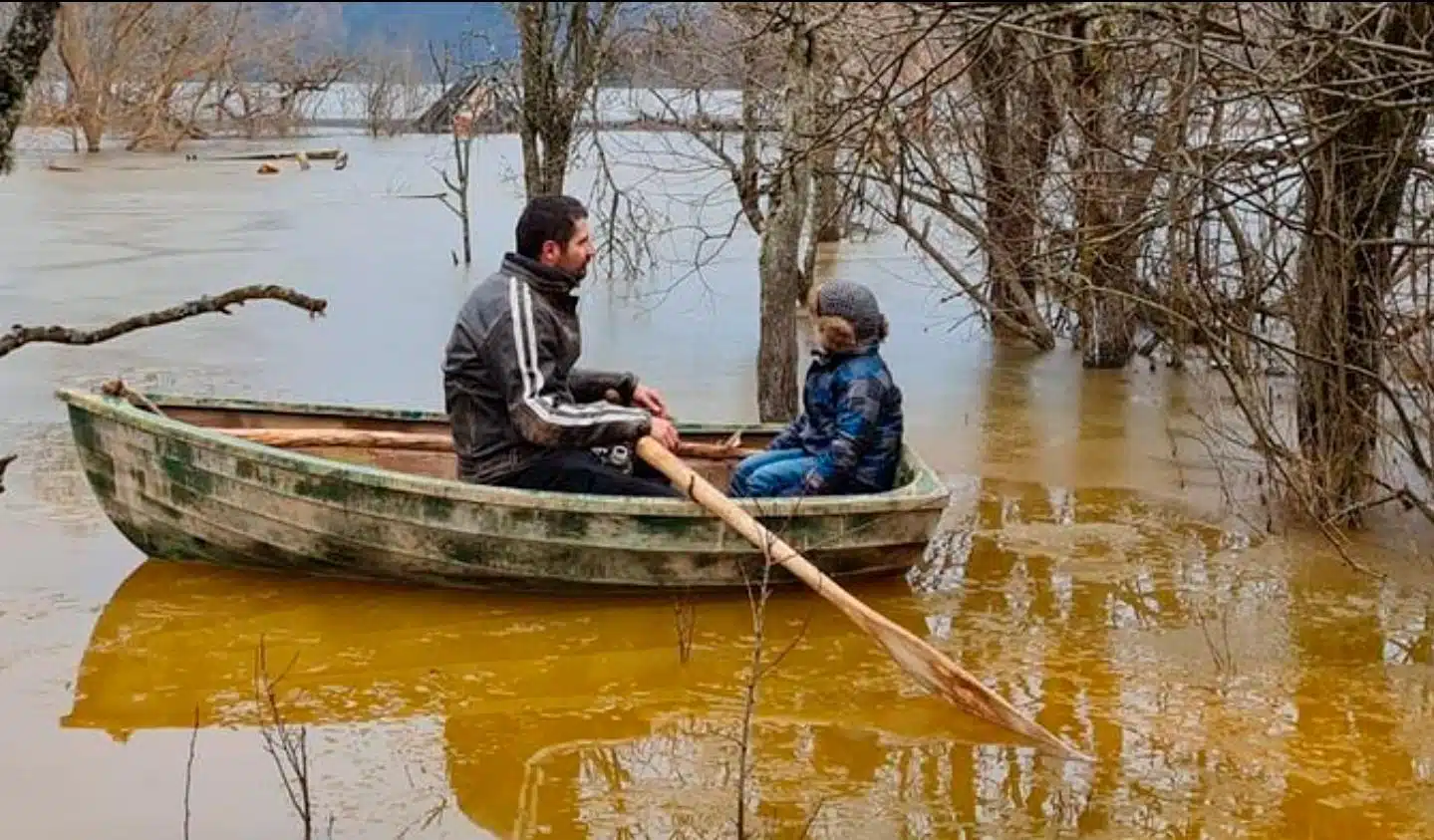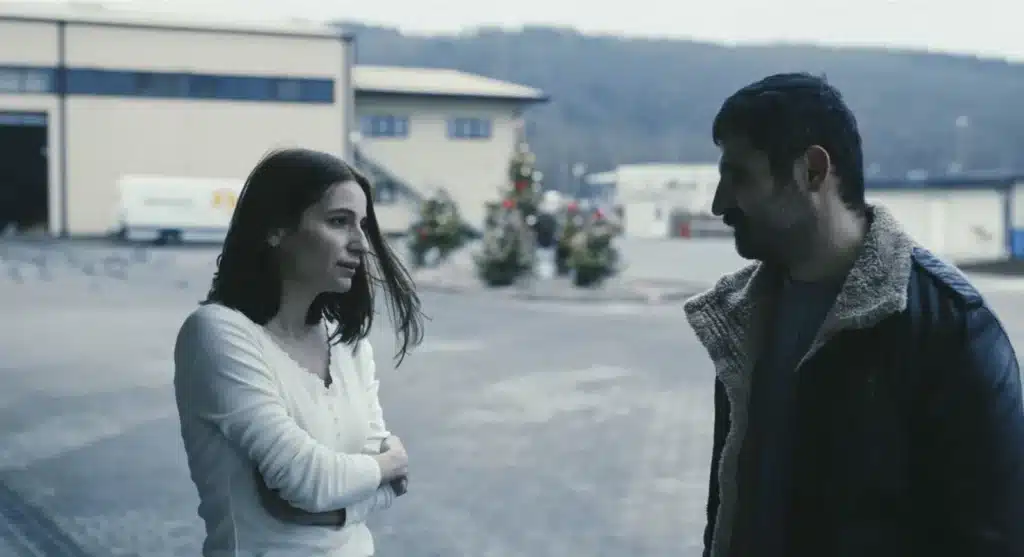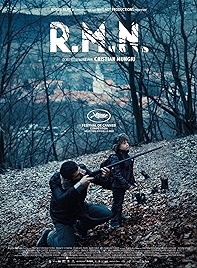The state of the Romanian nation is what Cristian Mungiu’s films tend to be about – Occident, 4 Months, 3 Weeks and 2 Days, Tales from the Golden Age, Beyond the Hills and Graduation have all dealt in various ways with the country’s escape (or not) from the Communist-era Ceaușescu regime and its progress towards becoming an more or less integrated part of modern Europe.
R.M.N. could be a truncated textspeak-y way of writing “Romania” but in fact it’s an acronym standing for Rezonanță Magnetică Nucleară, Magnetic Resonance Imaging in English, and that, in a sense is what the film is – a 360º scan of the nation, where the same grand game is going on as in most of the advanced countries of the world, and attitudes towards progress, however defined, determine almost everything.
The film is most obviously for home consumption but the read-across to other countries is there and Mungiu spends time painting in the background before proceeding further. Romania is home to Romanians, ethnic Hungarians, some Germans, and Roma (Gypsies as they’re subtitled here). Many of its able-bodied populace have fled for richer parts of the EU, like the “hero” of this story, Matthias (Marin Grigore), who in the opening moments of the film has a dreadful job in a slaughterhouse in Germany, then loses it when a supervisor calls him a “dirty Gypsy” and Matthias retaliates with a headbutt.
Having hitch-hiked back to his wintry home village just before Christmas, Matthias finds his wife unhappy to see him, his son incapable of speaking after being scared to death by something in the woods, and the only real source of local work – a bakery – offering only minimum wage jobs, which no local will stoop to.
The bakery, run by the kindly liberal Csilla (Judith State), decides to get in some Sri Lankans to do the jobs the locals won’t do. The Sri Lankans arrive and are gentle, decent people, hard workers whose fellow workers gradually start to accept them.
But in the village people see things from the other end of the exploitative telescope. Soon the argument has drifted from wages being kept artificially low by the arrival of these outsiders to the colour of their dark skin, that their filthy hands are all over decent Romanians’ bread and that the village has only just finally manage to expel the last of the Gypsies and now it’s starting all over again… etc.
Mungiu tries (and largely fails) to put a personal spin to this political tale in the relationship of Matthias to Csilla, an old girlfriend who is recently divorced and so is now free to pick up the relationship the two of them had before Matthias met his wife.
But Matthias is a member of the “stuck” group and Csilla is one of the “free”. He’s against progress and she is for it. To Mungiu’s way of seeing it, there is no real politics going on here, no right and wrong – each is simply defending their own interest. For Csilla a better job in the wider EU might come along at any minute. For Matthias that avenue has been explored and there was nothing in it for him.
It sound programmatic and to an extent all of Mungiu’s films are. And Mungiu struggles to integrate the personal Matthias/Csilla story with the bigger picture, as tensions over the Sri Lankans come to a head when a third Sri Lankan arrives in the village.
At a certain point you might want to abandon ship on this movie, which feels too familiar and too obvious, too didactic. But I urge you to hang on to the finale, when the entire village and the representatives of the bakery, Csilla and Matthias, the local priest, the mayor, etc etc all meet in a cultural centre (built, irony deliberate, with EU funds) and hash everything out. Here the movie bursts into an ugly life, the filmic equivalent of a gruesome flameout on Twitter, where a discussion about the bakery and its employment policies, the use of “outside” workers and so on descends into digression, irrelevance, whataboutery, on-the-nose observation, spurious rebuttal, the airing of long-held grudges, straw-man arguments, opportunistic grandstanding and out-and-out racism, the full misery of the social media experience.
With the camera firmly on Csilla and Mrs Denés, the bakery owner, Mungiu is with the liberals, but Matthias is right behind Csilla, comically trying to get her to hold his hand, and behind him the rage of the room.
In essence it’s a replay of the final, flame-out, state-of-the-liberal-or-not-nation section of Radu Jude’s Bad Luck Banging or Loony Porn. Two views of the future – insular versus outward-looking – bang heads.
The free market, open borders, the tidal movement of people across Europe to where the work is – these mean nothing to the vast majority of people in this room. And while it might in the long run eventually raise all boats (and to divert to reality for a second: Romania in 2019, when this is set, is growing much faster than Germany, France and the UK, and lags only Ireland and Malta), in the here and now what these people really want, and what a lot of the racist rage is about, is being underpaid.
Mungiu gets it all, in a nutshell, and even-handedly enough. Dramatically, he’s sailing much closer to the wind.
R.M.N. – Watch it/buy it at Amazon
I am an Amazon affiliate
© Steve Morrissey 2023


